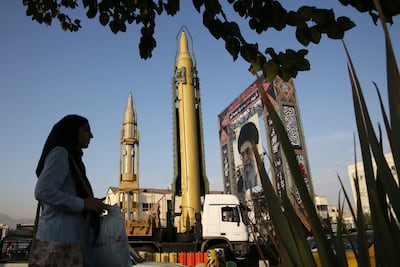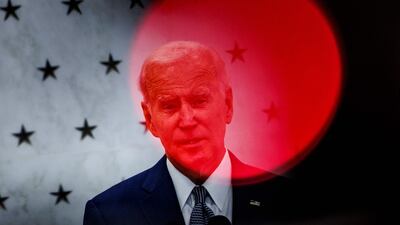US President Joe Biden’s visit to the Middle East this week is undoubtedly a precious opportunity for the region to express its belief in strengthening its friendships and long-standing strategic partnerships with the world’s most powerful country. This is an historic visit that should be welcomed warmly, and America’s regional allies – particularly in the UAE – will know that it can contribute toward bringing Washington’s relationships in the region to a new level. A more robust foundation for US alliances here would better reflect mutual interests and consolidate regional security. In light of continuing shifts in the regional and global strategic environments, this is more important now than ever before.
As per Mr Biden’s previous statements, his visit, which comes before the upcoming US mid-term elections, will focus on the potential and promising opportunities emerging from the Middle East’s new dynamics. The Abraham Accords are a prime example. They have generated an unprecedented level of co-operation between Arab countries and Israel. It is likely, therefore, that a major focus of the US President’s tour will be on developing new understandings and regional partnerships. This includes not only security but also other areas, like clean energy and food and water security.
Hopefully, the visit will solidify the US strategy for burden-sharing, which is essential to creating more efficient and credible tools to safeguard Washington and its allies’ interests. There is in this visit a great opportunity, for instance, to consolidate the Negev Forum as an annual summit that can bring more Middle East countries together in areas that go beyond their immediate economic and security needs and create a more sustainable modus vivendi for the region’s people. The first Negev Forum took place in Israel in March of last year, and brought together the foreign ministers of Bahrain, Israel, Morocco and the UAE, as well as the US Secretary of State. It was a watershed event, establishing a new framework for regional co-operation. The participants agreed to form six working groups, on clean energy, education and co-existence, food and water security, health, regional security and tourism. That work should continue.
Strengthening regional co-operation between Arab countries and Israel seems a promising development, and it comes with great expectations. But it is also essential not to lose sight of other issues.
One is the critical challenge of meeting the demands of a political settlement for the Palestinian-Israeli conflict, reducing tensions and escalations, and involving the Palestinians in current and future regional co-operation efforts. Without this, a comprehensive and sustainable regional peace will remain elusive.
Another challenge is Iran’s regional behaviour. The members of the GCC and other Arab countries still advocate a diplomatic approach with Iran, including economic diplomacy rather than the use of military options. At the same time, GCC countries need to be assured about the peaceful nature of Tehran’s nuclear programme. The same goes for its ballistic missile programme and harmful regional policies.

It is the hope of many here that Mr Biden’s visit will strengthen UAE and GCC security and defence capabilities against missiles, drones and other emerging threats, and enhance US-GCC ties. Many also want to see the visit earmark a new approach to regional security – one that combines deterrence with containment, de-escalation policies and consolidated economic solutions. This would be a prelude to promoting security and expanding co-operation between Arab countries, including Palestinians, but also with Turkey and Israel.
It is important to clearly outline the benchmarks for a successful visit by Mr Biden. Two, in particular, stand out.
The first is whether it results in the creation of a solid approach to addressing Iranian threats while also maintaining diplomatic engagement with Tehran and preventing regional conflict. If the US uses its influence to contain Iranian threats and integrate Iran into the diplomatic path, the US burden-sharing strategy will receive a strong push from Washington’s Middle Eastern allies.
The second benchmark is whether or not it will clarify contours of US policy concerning China and Russia that take into account the interests of Arab states. The desires of GCC countries as well as other allies of the US to maintain strategic balancing in their policies will depend to a great extent on the nature of US commitment towards the security and interests of those partners and broader regional stability.
The Middle East has made great strides in regional co-operation and co-existence recently. Many of the building blocks for peace are there. But the US still has a very large role to play in strengthening the fundamentals of this evolving peace, and it can do so by showing that its commitment to its allies is both unwavering and in touch with their needs and concerns. Mr Biden’s visit provides a much-needed opportunity to achieve this.


